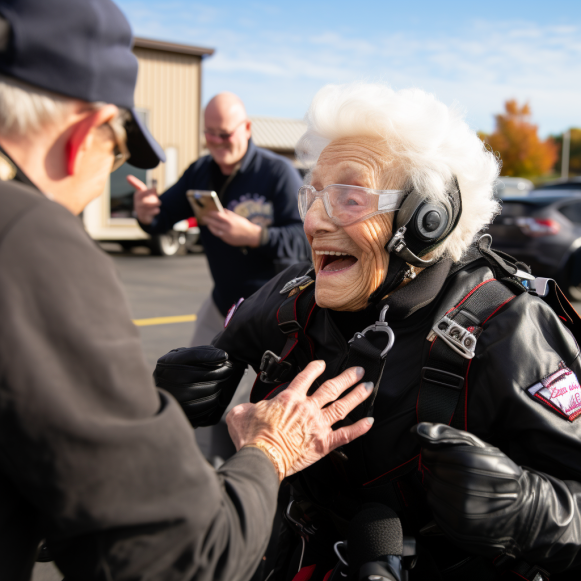Who’s the mystery player behind new bid to legalize sports betting in California?

Tribes decry mystery sponsors of new gaming effort as “morons,” “fools” and “idiots”
California voters rejected a pair of competing ballot initiatives to legalize sports betting last year, but the Golden State is too big a prize for gaming interests to simply fold and walk away. A mystery player has now anted up for another round of voting.
Proponents have filed with the state Attorney General’s Office to put on the November 2024 ballot a pair of proposed measures that would allow on-site and online sports betting in California through the state’s recognized Indian tribes. However, California’s gaming tribes are not on board, and it is unclear who is funding the effort.
“That seems to be the million dollar question — who are these people?” XLMedia, which specializes in online gambling and sports betting, has a regulatory writer and editor named Robert Linnehan. “Why did they take it upon themselves to submit two ballot measures on behalf of the tribes who say they want nothing to do with this?”
According to industry experts, the why is a little easier to answer.
“The why is just a constant — (it’s) the potential that the California market has for sports wagering,” explained Covers analyst Geoff Zochodne. “It’s the most valuable of the crown jewels for that type of betting.” So, while it may appear insane to try again to unlock the market after such a resounding defeat, the upside is just so compelling that people may be unable to resist.”
And if anyone can afford to fund a costly initiative campaign in California, it’s the gaming industry, which spent a record $360 million on competing propositions 26 and 27 last year. Prop 26 to allow sports betting at California’s American Indian gaming casinos and licensed racetracks was defeated by a two-to-one margin in November 2022. They voted four to one against Prop 27, which would allow online sports betting.
Ryan Tyler Walz signed documents filed with the Attorney General’s Office late last week for the proposed “Tribal Gaming Protection Act” and “Sports Wagering Regulation and Tribal Gaming Protection Act,” which listed online entrepreneur Reeve Collins as the primary contact. Walz did not answer a listed phone number.
Experts were perplexed as to why proponents filed two separate initiatives rather than combining them into one. Both, according to Zochodne, only allow sports betting through tribes, but one also includes a proposed framework.
Collins did not respond to messages left on his listed Los Angeles area phone number or email address. According to his voicemail, “these acts are designed to protect California tribes and California taxpayers whose dollars are being diverted to offshore unregulated gaming sites.” We’ll have a lot more information soon, and we’re really excited about the process.”
Collins’ LinkedIn profile states that he raised $70 million to launch “a legal, real-money gambling site based in the United States called Pala Interactive,” and industry reports and sources indicate that Walz was involved. Pala is a San Diego County American Indian reservation. The Pala Band of Mission Indians, on the other hand, said it “is not involved in either of the initiatives that were filed with the attorney general.”
Boyd Gaming Corp., a 5% equity owner of FanDuel Group, the nation’s leading sports-betting operator, paid $172 million for Pala Interactive in November 2022. However, Boyd spokesman David Strow stated that the family-owned company is not behind the recent California initiative filings and is not affiliated with Walz and Collins in any way.
The California Nations Indian Gaming Association, which represents 52 federally recognized tribal governments and associate members dedicated to the tribal gaming industry, was not included in the initiative effort.
The group stated in a news release issued on Friday, the day the proposed initiatives were filed, that it “is deeply disappointed that the sponsors of the two recently filed initiatives did not first reach out to the State’s largest tribal gaming association for consultation and input.”
“While the sponsors of these initiatives may believe they know what is best for tribes, we encourage them to engage with Indian Country and ask, rather than dictate,” said the Indian Gaming Association in a statement, adding that it would not comment further.
In social media posts, Victor Rocha, conference chairman of the Indian Gaming Association and member of the Pechanga Band of Indians, called the initiative’s supporters “morons,” “fools,” and “idiots” who had “sent a letter to California tribal leaders asking them not to talk to the press until they had a chance to talk to leadership.”
Rocha wrote on Tuesday that he was “still digging around” to learn more about the proponents and their supporters, and that “this thing is so dead.”
The majority of California Indian tribes supported Proposition 26 last year, including the California Nations Indian Gaming Association and the Pechanga and Pala bands. Several tribes and the American Indian Chamber of Commerce of California opposed Proposition 27, but it received support from others.
Filing for an initiative costs $2,000 and starts the process of requesting a ballot title and summary from the Attorney General’s Office. The attorney general notifies the Secretary of State that proponents may circulate petitions to qualify the proposed initiative after a 30-day public comment period and financial impact review.
Then it becomes prohibitively expensive. Because both proposed measures would amend the state constitution, proponents must submit at least 874,641 valid voter signatures, representing 8% of the votes cast in the previous governor’s election, in order to qualify for the ballot. Signatures must be collected within 180 days of the official summary date. If they meet the threshold, the initiative will appear on the ballot for the next statewide special or general election 131 days after qualifying.
According to Linnehan, 35 states, plus the District of Columbia, have some form of legalized sports betting, and 25 states allow online sports betting. North Carolina, Vermont, and Maine are the three other states that have legalized but have not yet launched online sports betting.However, he predicted that California would be America’s largest sports betting market.
“The state will likely legalize sports betting at some point,” Linnehan told the newspaper. “How that happens is the million dollar question.”





